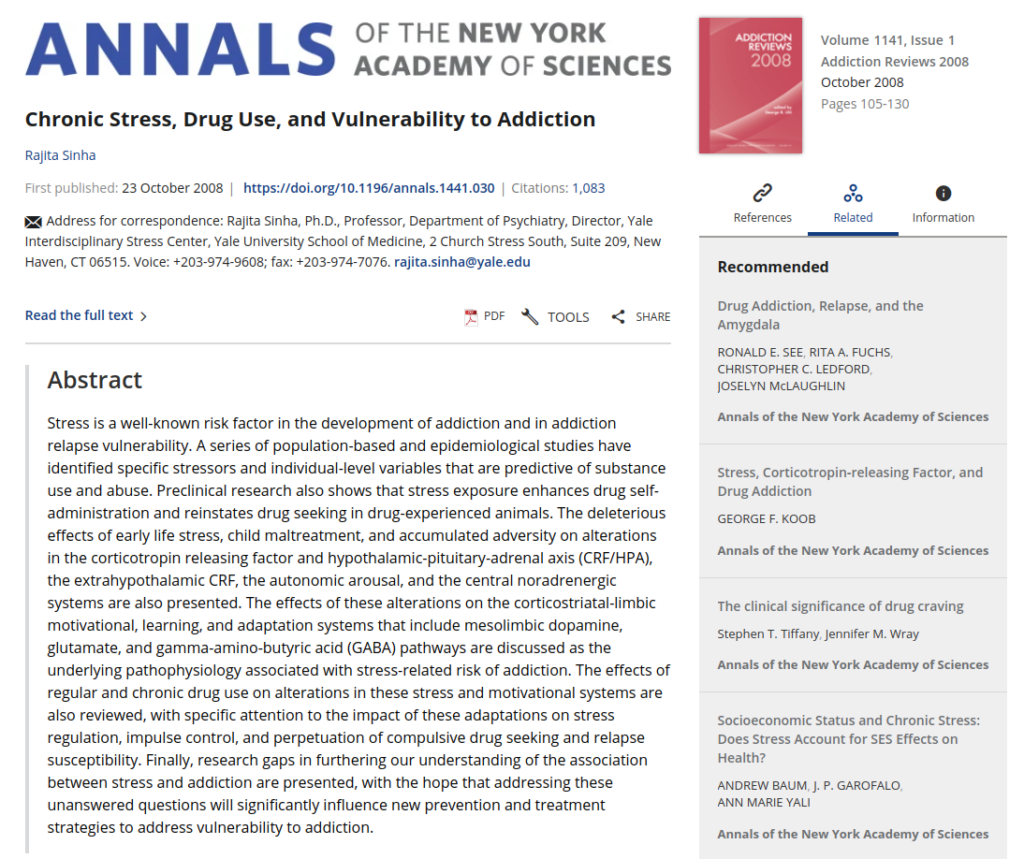Stress is a well-known risk factor in the development of addiction and in addiction relapse vulnerability. A series of population-based and epidemiological studies have identified specific stressors and individual-level variables that are predictive of substance use and abuse. Preclinical research also shows that stress exposure enhances drug self-administration and reinstates drug seeking in drug-experienced animals. The deleterious effects of early life stress, child maltreatment, and accumulated adversity on alterations in the corticotropin releasing factor and hypothalamic-pituitary-adrenal axis (CRF/HPA), the extrahypothalamic CRF, the autonomic arousal, and the central noradrenergic systems are also presented. The effects of these alterations on the corticostriatal-limbic motivational, learning, and adaptation systems that include mesolimbic dopamine, glutamate, and gamma-amino-butyric acid (GABA) pathways are discussed as the underlying pathophysiology associated with stress-related risk of addiction. The effects of regular and chronic drug use on alterations in these stress and motivational systems are also reviewed, with specific attention to the impact of these adaptations on stress regulation, impulse control, and perpetuation of compulsive drug seeking and relapse susceptibility. Finally, research gaps in furthering our understanding of the association between stress and addiction are presented, with the hope that addressing these unanswered questions will significantly influence new prevention and treatment strategies to address vulnerability to addiction.
Chronic Stress, Drug Use, and Vulnerability to Addiction
Abstract
Web and Email Links
Related Listings
Journal
Neurobiology of Stress
Journal devoted to the neurobiology of stress
Journal
NeuroReport
Previous research indicates that long-term meditation practice is associated with altered resting electroencephalogram patterns, suggestive of long lasting changes in brain activity. We hypothesized that meditation practice might also be associated with changes in the brain's physical structure. Magnetic resonance imaging was used to assess cortical thickness in 20 participants with extensive Insight meditation experience, which involves focused attention to internal experiences. Brai […]
Journal
Minn Med.
Although the physiological and biochemical changes that occur during the acute stress response have been well-characterized, the contrasting changes that underlie the relaxation response evoked by various mind-body techniques are less understood. To help guide future mind-body research, we present a conceptual model that integrates patterns of change at the physiological and molecular levels. In addition, we point to future research opportunities and discuss how repeated elicitation o […]

